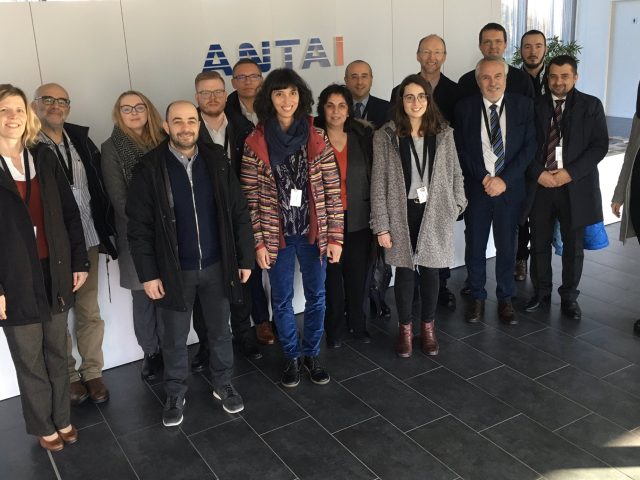France study visit 2020

The first study visit of the EU Road Safety Exchange project, on the topic of speed enforcement, was organised at the National Processing Centre of Road Traffic Offences in Rennes, France on 21 January 2020.
The visit was led by Joël Valmain, Adviser for European and International Affairs to the French Interministerial Delegate for Road Safety.
Delegations from Greece, Poland and Romania, as well as representatives from the European Commission and the European Transport Safety Council participated. The delegations represented public authorities from participating countries.
The National Processing Centre of Road Traffic Offences (CNT) manages the handling of automated traffic offences from speed cameras and red light cameras. It is under the responsibility of the French Minister of the Interior.
Great first EU #roadsafetyexchange visit today to see how France 🇫🇷@RoutePlusSure handles automated enforcement of speeding offences to improve road safety. Useful insights and discussions for our Greek, Polish and Romanian partners. pic.twitter.com/RPZG7eFBCG
European Transport Safety Council (@ETSC_EU) January 21, 2020
CNT employs around 500 people, state agents including the police and gendarmes of the Automated Centre for Observation of Traffic Offences (CACIR) and the Public Prosecutor’s Office but also employees of the 17 partner private companies managing computer systems, maintenance, shipments of traffic fines, the call centre, etc.
Among the processes of the centre are the processing, reading and ensuring transcription of offence messages, providing data for checking and validation of the offences, printing and sending of the traffic violation notices. Around 36 million offence files were processed in 2018.
Information and simplification of administrative procedures are ensured through the ANTAI website and the call centre. The Centre has 20 European partners, and sent around three million offence tickets abroad in 2018 in 75 countries.
Main takeaways
- Strong political will is necessary to bring about major changes in the road safety policy of a country. It was the case for France in 2002, when President Chirac announced that traffic safety would be a national priority. The following year, the first speed cameras were installed in France. The National agency for automated offence processing (ANTAI) was created in 2011.
- Most “driver liability” countries need to identify the driver in the image and have to process all evidence manually. Lighting conditions of the license plates and driver faces are quite different and need to be adjusted to produce credible evidence. The rates of prosecution for driver liability countries are considerably lower than for owner liability countries. France applies the owner liability system – with the burden of proof on the owner if they believe they were not driving.
- A combination of owner liability, administrative law, clear license plates, high quality enforcement cameras and effective software allows countries like France to annually process millions of violations from automated enforcement systems with limited human intervention from one national processing and fine collection centre.
- The money resulting from the traffic fines go to a separate account in the national budget and is reinvested exclusively in road safety measures, including new equipment for traffic violations detection, road infrastructure maintenance etc.